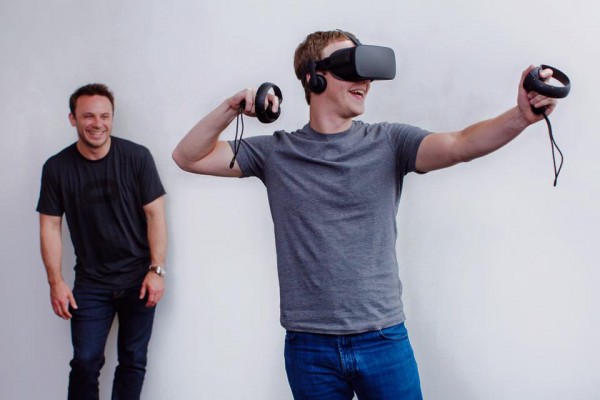
Holy. Shit.
Facebook has paid nearly $3 billion for Oculus and they’re still getting their ass kicked by PlayStation VR which costs a fraction and has a far higher marketshare. Patrick O’Rourke tackles the story for mobilesyrup:
Zuckerberg visited a Dallas, Texas courtroom to testify in the ongoing lawsuit against Oculus by video game publisher Zenimax, which claims the Rift is based on technology John Carmack — who at one point was working for ZeniMax and Oculus at the same time — created while still working for his previous employer.
Facebook revealed that it paid a total of $2 billion USD for Oculus when the transaction was initially announced in 2014. Now, according to Zuckerberg’s testimony, Facebook actually paid an additional $1 billion for the company that consisted of employee retention packages and goal targets. This means Oculus paid a total of $3 billion for the virtual reality headset manufacturer.
The reason big acquisitions tend to go wrong so often is that you’re force-injecting different companies and cultures in hopes of having it bear something fruitful instead of building from the ground up. When the acquisition valuation is smaller, it tends to come with smaller teams and smaller short term objectives which make it all more achievable. In the case of Facebook and Oculus, I’m not sure what the division has to even do before they’ve earned back the initial $3 billion price tag that now comes with it, let alone whatever cash they’ve burned through since.
For Sony, the price tag of PlayStation VR from inception which includes R&D to final retail units is unknown, but it’s guaranteed to be less that a $1 billion because Sony frankly doesn’t have that kind of money to throw around, which in this case is for the better. With a far smaller war chest to spend on projects, PlayStation has had to be more nimble and creative with the solutions they’ve brought to market and despite being a cheaper product, PSVR is still far more comfortable than its competitors, a huge win for something that has to be strapped to your head.
My point here is that you can’t often buy success with large billion dollar acquisitions and I can’t help but think we’ll see a big strategic shift for Oculus in the coming year because there is simply no way that price tag can ever earn back its worth through gaming alone. If this does happen, it will leave a lot of developers scrambling and frankly screwed depending on how invested they were in Oculus. Remember when Microsoft dropped support for Kinect on Xbox One?
I should further point out that’s it’s also highly unlikely that Zuckerberg and co. bought Oculus to get into the gaming business and that their goals have always been far more ambitious, if not broader for VR, but I’m not entirely convinced it needed to start with such a high price tag in order to be achieved.

You must be logged in to post a comment.